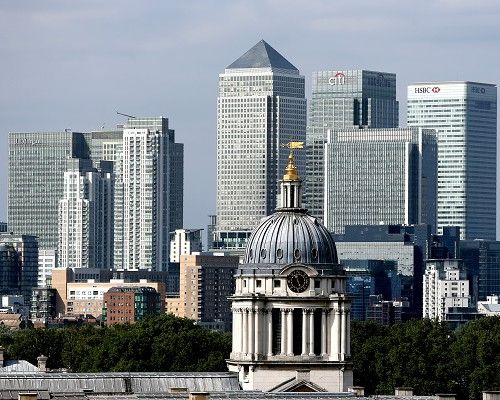

Britain's leading share index headed sharply lower on Friday as the combined effect of a series of political and economic crises around the world snowballed to send global markets into a slide.
The FTSE 100 Index registered a 100 point drop during the session, blunting recent hopes that it was on course to beat its all-time high.
Traders in the Square Mile took their cue from across the Atlantic, with New York's Dow Jones Industrial Average plunging by 317 points on Thursday, the biggest drop since February.
Markets had recently appeared to be shrugging off escalating global tensions over Ukraine, Iraq and the Portuguese banking sector - with policy makers admitting they were baffled that they had not been more volatile.
The prospect of central banks in the US and the UK withdrawing stimulus in the form of low interest rates and money printing quantitative easing (QE) policies also seemed not to be bothering investors as it had done during last year.
But the confluence of events reached a tipping point this week as the West tightened up sanctions against Russia, threatening Europe's economy and energy needs.
Further anxiety was stoked by Argentina being forced into a debt default and the deepening woes of Portugal's Espirito Santo bank.
In addition, new fears about the US Federal Reserve pulling away stimulus, as well a rash of poorly-received American corporate results, combined with the sense that a correction in the stock market was long overdue, pushed traders into sell-off mode.
Wall Street had seen five straight months of gains but trading screens turned red as July came to a close and investors banked profits. London followed today while Paris's Cac 40 and Frankfurt's Dax also plunged.
The FTSE 100 reached a three-month low as it slumped below 6630 points.
It is a far cry from optimism at the start of the year that the index would break through the record close of 6930.2 - set during the dotcom boom in December 1999 - in 2014, and even reach as high as 7500. But it is now lower than January.
This is despite figures last week showing the UK economy continued to grow strongly, expanding by 0.8% in the second quarter to take gross domestic product (GDP) back above pre-crisis levels last seen at the start of 2008.
The performance of London's stocks, heavily exposed to global markets, tends to be more influenced by US and international trading currents.
On currency markets, the pound was also down today, dropping a cent against the US dollar as a survey showed growth in Britain's beleaguered manufacturing sector during July was its weakest for a year.
Comments
Comments on this story express the views of the commentator only, not Bailiwick Publishing. We are unable to guarantee the accuracy of any of those comments.